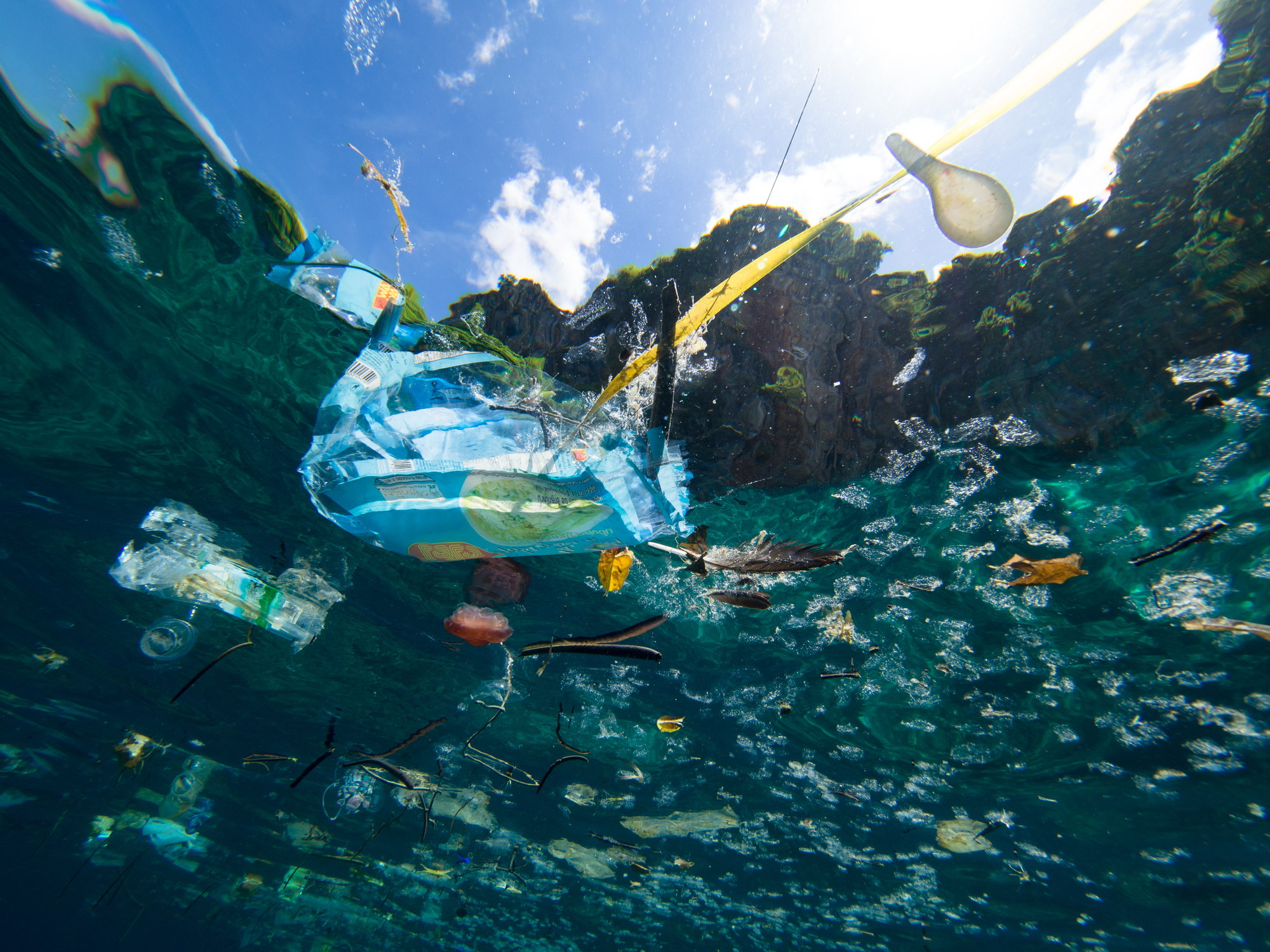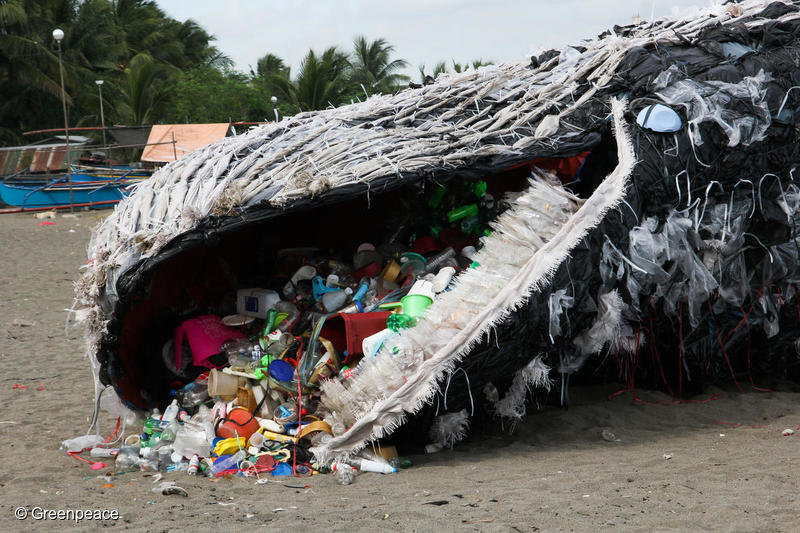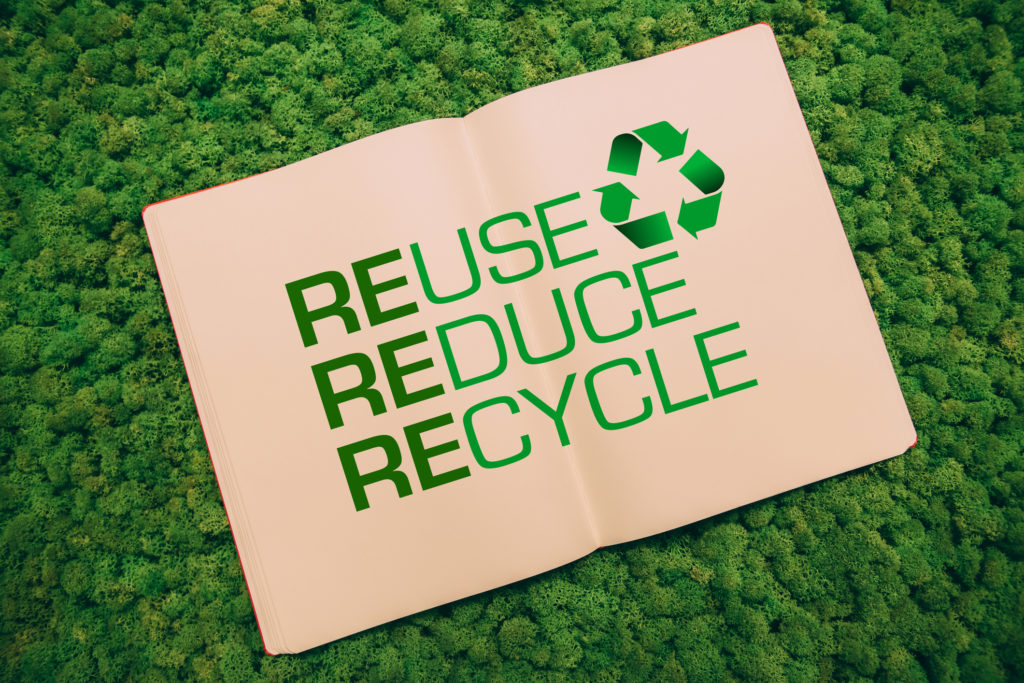
Saving our seas from plastic
Earlier this year, my twelve-year-old son Oliver arrived home from his after-school club carrying a bag of 'beach gems'. Having formed an Entrepreneurs Club with a friend, they had collected some of the plastic waste from Bexhill's beaches, melted it down, and turned it into attractive, colourful trinkets. This single-use plastic waste suddenly had an inventive second use, thanks to some creative thinking.
I’m very proud of my son, and the resourcefulness and ingenuity of the dynamic duo are great to see. The harsh reality for us all, though, is that we’re going to need an enormous amount more creative thinking to solve the world’s monumental problem of plastic waste. Here’s a stark example of why:
In February this year, a dead sperm whale washed up on a coastline in Southern Spain. An autopsy found the whale’s stomach and intestines contained 64 pounds (29kg) of plastic. They pulled out plastic bags, nets, ropes, plastic sacks, and even a plastic jerrycan. Experts believe the whale died because of a bacterial infection caused by its inability to expel the plastic.
This isn’t a one-off story. In June, news outlets throughout the world reported on a whale that died in Southern Thailand. Investigations revealed that the whale had over 80 plastic bags, weighing up to 18 pounds (8kg), in its stomach. Gruesomely, the poor whale vomited up five plastic bags while rescuers were attempting to save him.

The message needs to strike home, and it needs to do so quickly. We use too much plastic, and we don’t recycle enough of it.
Plastic facts
It is said that the equivalent of a rubbish truck of plastic is entering the world’s oceans every single minute – a staggering 12 million tonnes a year. A recent Sky Ocean Rescue campaign highlighted that if circumstances continue, when we reach the year 2050 all the plastic in the ocean could outweigh all the fish.
According to Ocean Conservancy, plastic has been found in more than 60% of all seabirds and in 100% of sea turtles species.
Here are some more facts for you to consider:
The human race produces approximately 300 million tonnes of plastic each year (NY Times). Of that, only around 10% gets recycled. It’s said that 50% of plastic produced is single-use (we use it once, we throw it away). Upstream sums it up well when saying, “today we use plastic — a material designed to last forever — for products designed to last minutes.”
#PassOnPlastic
As a world, we’re dependent on plastic, but we don’t need to be. There are ways we can use less, and if we all start making small changes then transformation becomes possible. Ultimately, consumer trends dictate what manufacturers and retailers produce, package and sell.
So, let’s:
- Increase our awareness of what we are buying and how it is packaged.
- Research and buy alternative products that aren’t made of plastic (bamboo toothbrushes, re-useable stainless steel water bottles).
- Say no to plastic straws, plastic produce bags and anything covered in excess-plastic.
- Say no to anything that comes in a black plastic tray (often used to make ready-meals look more appetising, they’re impossible to recycle).
- Stop buying (or change) our regular shopping purchases if they are packaged in non-recyclable materials. Consider writing to the manufacturer to urge them to change the packaging.
- Change our shopping habits to carry re-usable shopping bags.
- Take some time out to help with beach cleans, and help save our marine wildlife.
These are just a few little ideas. You can find lots more ideas for living a plastic-free life at My Plastic-free Life.

I once again sponsored Bexhill’s annual Festival Of The Sea in September; a highlight of Bexhill’s summer. As well as celebrating the beauty and wonder of our oceans, the Festival Of The Sea also communicates an important message. We are lucky to live by the sea, and we need to work harder to look after it.
“Our actions over the next 10 years will determine the state of the ocean for the next 10,000 years.”
Sylvia Earle, Oceanographer
Alastair

Alastair Hazell
I am a serial entrepreneur who enjoys writing stories of inspiration. You can follow me on LinkedIn.

